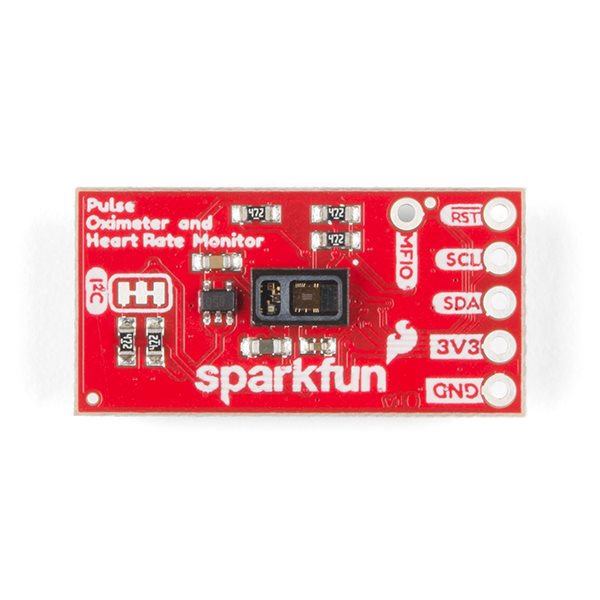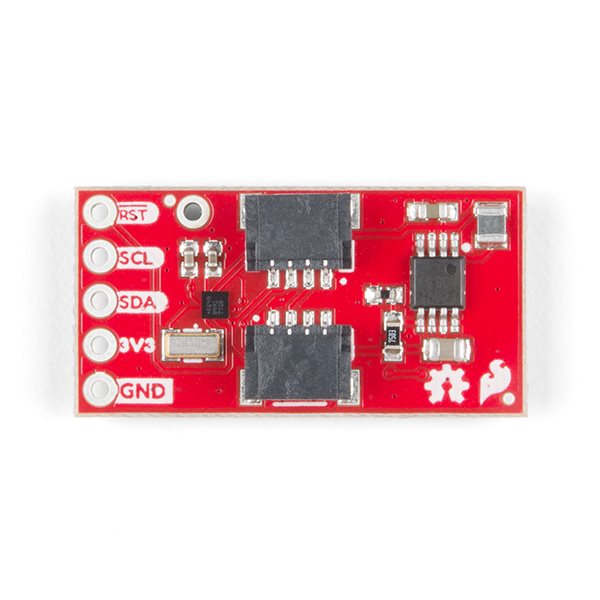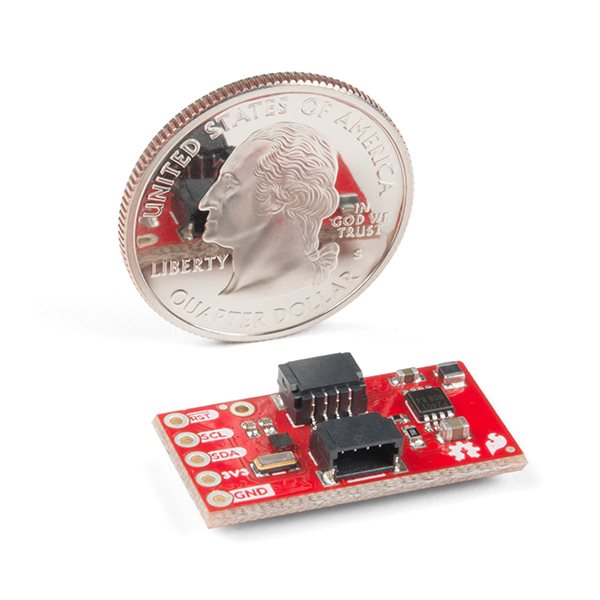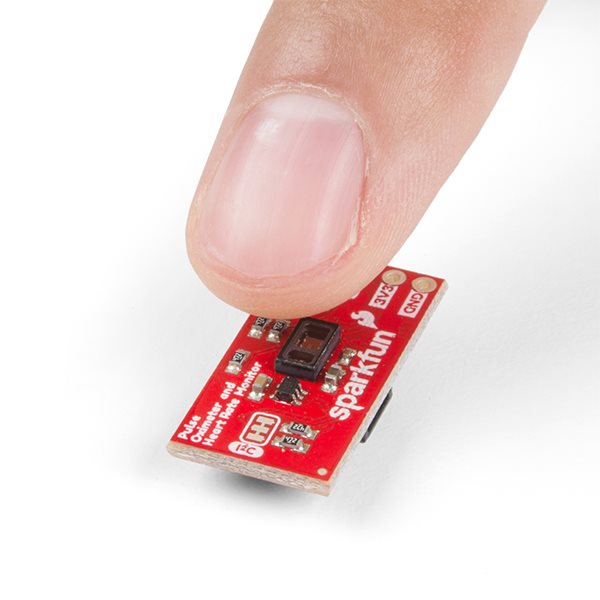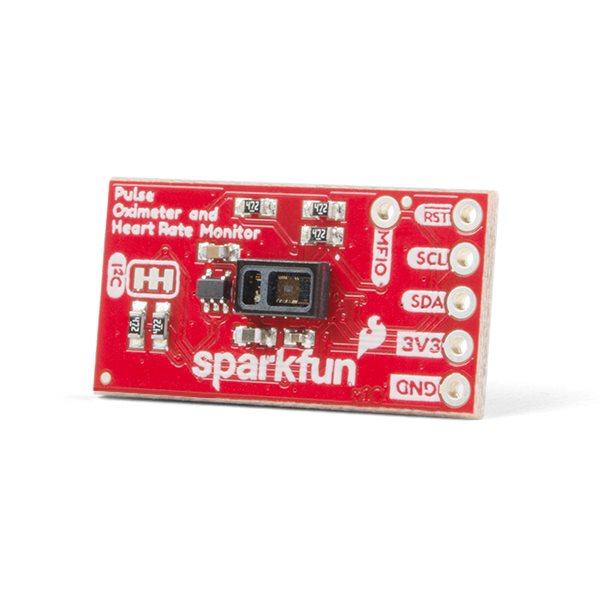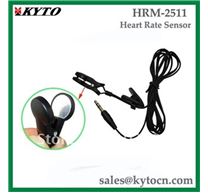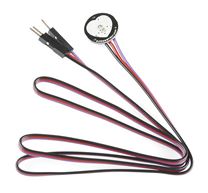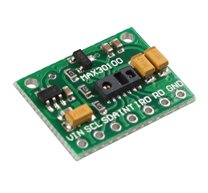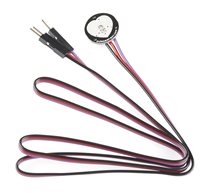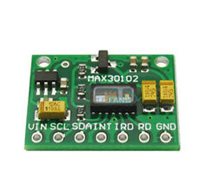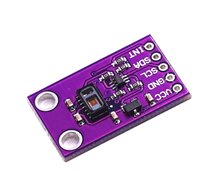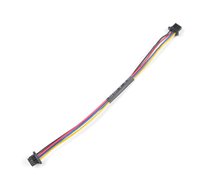SparkFun Pulse Oximeter and Heart Rate Sensor - MAX30101 & MAX32664 (Qwiic)
Description:
The SparkFun Pulse Oximeter and Heart Rate Sensor is an I2C based biometric sensor, utilizing two chips from Maxim Integrated: the MAX32664 Biometric Sensor Hub and the MAX30101 Pulse Oximetry and Heart Rate Module. While the latter does all the sensing, the former is an incredibly small and fast Cortex M4 processor that handles all of the algorithmic calculations, digital filtering, pressure/position compensation, advanced R-wave detection, and automatic gain control. We've provided a Qwiic connector to easily connect to the I2C data lines but you will also need to connect to two additional lines. This board is very small, measuring at 1in x 0.5in (25.4mm x 12.7mm), which means it will fit nicely on your finger without all the bulk.
The MAX30101 does all the sensing by utilizing its internal LEDs to bounce light off the arteries and arterioles in your finger's subcutaneous layer and sensing how much light is absorbed with its photodetectors. This is known as photoplethysmography. This data is passed onto and analyzed by the MAX32664 which applies its algorithms to determine heart rate and blood oxygen saturation (SpO2). SpO2 results are reported as the percentage of hemoglobin that is saturated with oxygen. It also provides useful information such as the sensor's confidence in its reporting as well as a handy finger detection data point. To get the most out of the sensor we've written an Arduino Library to make it easy to adjust all the possible configurations.
The SparkFun Qwiic connect system is an ecosystem of I2C sensors, actuators, shields and cables that make prototyping faster and less prone to error. All Qwiic-enabled boards use a common 1mm pitch, 4-pin JST connector. This reduces the amount of required PCB space, and polarized connections mean you can’t hook it up wrong.
Features:
SparkFun Pulse Oximeter and Heart Rate Sensor
- MAX30101 and MAX32664 sensor and sensor hub
- Qwiic connectors for power and I2C interface
- I2C Address: 0x55
MAX30101 - Pulse Oximeter and Heart-Rate Sensor
- Heart-Rate Monitor and Pulse Oximeter Sensor in LED Reflective Solution
- Integrated Cover Glass for Optimal, Robust Performance
- Ultra-Low Power Operation for Mobile Devices
- Fast Data Output Capability
- Robust Motion Artifact Resilience
MAX32664 - Ultra-Low Power Biometric Sensor Hub
- Biometric Sensor Hub Solution
- Finger-Based Algorithms Measure Pulse Heart Rate and Pulse Blood Oxygenation Saturation (SpO2)
- Both Raw and processed data are available
- Basic Peripheral mix optimizes size and performance
Kit include:
1 x SparkFun MAX30101 & MAX32664 (Qwiic)
Documents:
- Schematic
- Eagle Files
- Board Dimensions
- Hookup Guide
- Datasheet (MAX30101)
- Datasheet (MAX32664)
- User Guide (MAX32664)
- Arduino Library
- GitHub Hardware Repo
Related Products
subscribe to our weekly newsletter


